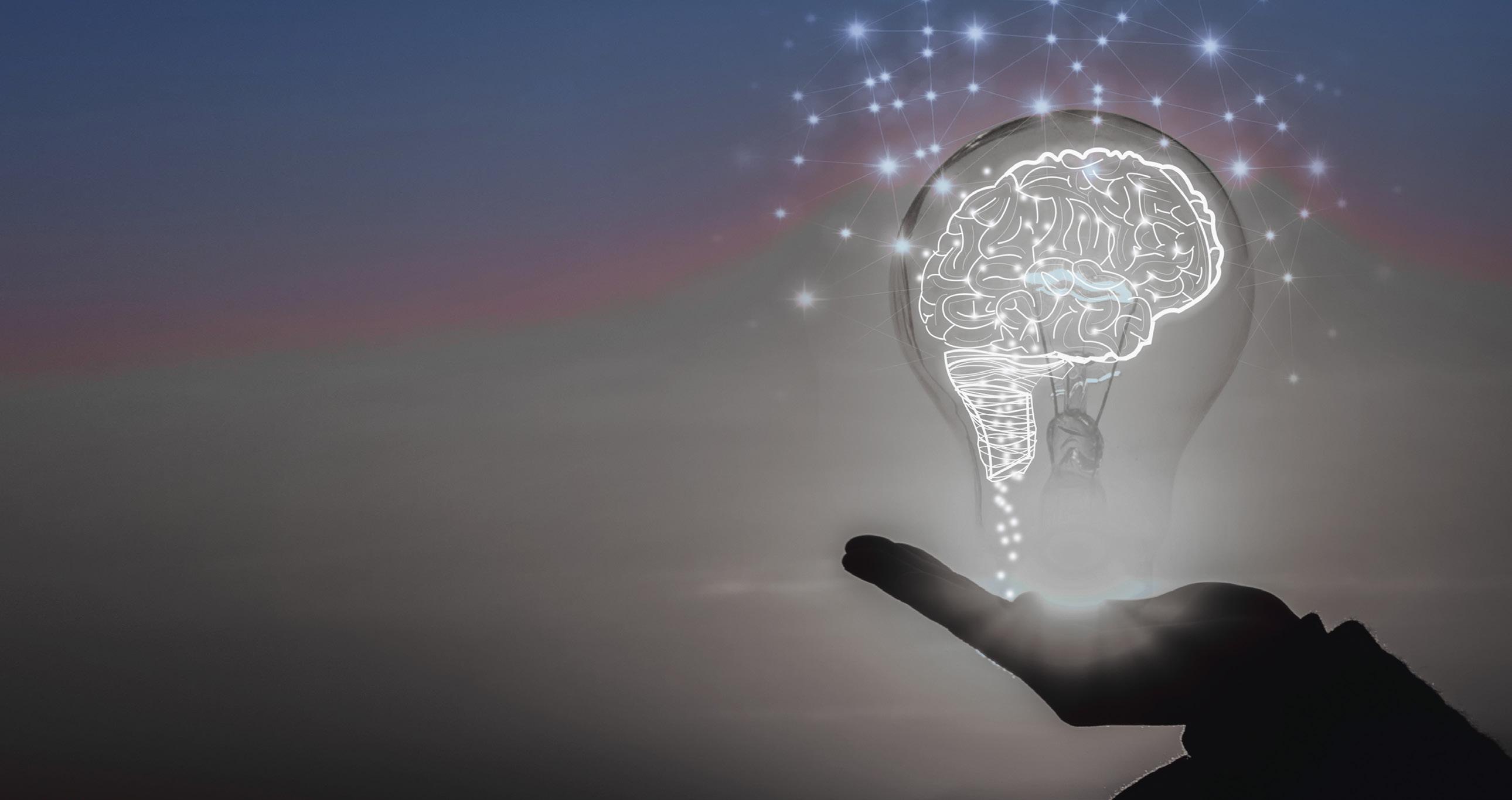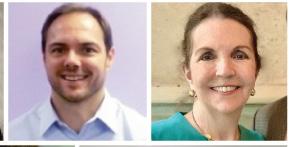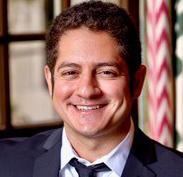3 2 1
Benefit from tax incentives via the CARES Act* (potentially)
Direct your gift to a program in your area(s) of interest
Become part of the BrainHealth revolution, a cause that can benefit all of humanity
We hope you’ll include Center for BrainHealth in your end-of-year giving plans and are grateful for your consideration. Please contact Julie Heckmann at julie.heckmann@utdallas.edu or 972-883-3277 to discuss how your gift can help further our mission.
*Coronavirus Aid, Relief, and Economic Security Act
Intercepting the Global Brain Health Crisis
The COVID-19 pandemic has wrought hardship and misery all over the world this year, with suffering on many fronts at once: extended isolation and weakened social support, uncertainty about jobs, anxiety about the health and welfare of loved ones, and a combination of fear, anger and sadness related to the state of our world.
As Dr. William Hynes, senior advisor to the Secretary General of the Organization for Economic Cooperation and Development (OECD), recently stated, we are experiencing nothing short of a global “brain health catastrophe”.
Brain Capital Will Fuel the Post-COVID World
After the COVID-19 pandemic crippled the global economy, BrainHealth researchers joined a major international collaboration (including the above-mentioned OECD) to develop a science-based plan that could help the economy recover and prevent similar collapses in the future. The Brain Capital Grand Strategy, recently published in Molecular Psychiatry, is an economic reimagination centered on brain health as a critical, measurable asset.
“An entirely new approach to building global resilience is needed, and it must endure for future challenging decades,” said Harris Eyre, MD, PhD, senior author and co-founder of the PRODEO Institute.
We will need all our brainpower to forge a new path in recovery. Improving brain health – emotional, behavioral and cognitive functioning –
helps people tap into their brain’s limitless potential, catalyze innovative thinking and improve their productivity, all of which in turn propel the economy forward and strengthen our social fabric.

How can we get there?
continued on Page
Pg 2 INSIDE THIS ISSUE Brain Matters 2020 Q4 page 1 4TH QUARTER 2020 In Memoriam Insert Recognition of 2020 Donors Pg 3 The Project Lifts Off New Advisory Board Members
TOP 3 REASONS TO GIVE TO BRAINHEALTH BEFORE YEAR END
2 3193 Dallas, TX
Pg 4 Friends of BrainHealth Awards February Lecture Series Announced
Two Skills Most Needed for Economic Recovery
A recent Economic Outlook statement from the OECD noted, “With the COVID-19 pandemic continuing to threaten jobs, businesses and the health and well-being of millions amid exceptional uncertainty, building confidence will be crucial to ensure that economies recover and adapt.”
Confidence arises from our cognitive resilience –our ability to absorb, adapt to and bounce back from stress, challenges or adversity. This is particularly crucial in our modern, digital and increasingly automated economy where brain skills are central to productivity.
Resilience will position us for the future, and innovative thinking will catapult us to new heights.
Innovation entails the ability to think beyond single solutions toward a multitude of possible ideas, pathways, perspectives, opportunities, and options. As we contemplate a post-COVID economy, flexible and nimble thinking will be a critical skill for us to chart new directions.
As Critical as a Vaccine
Strong and enduring brain health will be as critical as a vaccine in staving off the worst effects of COVID-19, and BrainHealth researchers are already demonstrating the effectiveness of SMART™ to bolster the brain’s fitness and performance in the midst of the pandemic.
SMART stands for Strategic Memory Advanced Reasoning Tactics, and it is a prescribed methodology that has been developed, tested and honed over the past three decades by the researchers at the Center for BrainHealth. Its most innovative delivery is being tested through The BrainHealth Project
During the spring of 2020, the BrainHealth team kicked off the first pilot phase of The BrainHealth Project, just as the global economy was shutting down with the first wave of the pandemic. This coincidental timing allowed researchers to explore the beneficial effects of adopting brain-healthy cognitive habits as individuals faced unprecedented degrees of uncertainty, stress and anxiety.
With a robust participation of 174 individuals aged 18 to 87, initial results paint a strikingly hopeful picture.
In Memoriam
1939
LL was a BrainHealth board member for over a decade and chaired BrainHealth’s former golf tournament fundraiser. He was passionate about supporting BrainHealth’s emerging scientists and contributed annually through the Friends of BrainHealth donor group. His wife, Ka, is the immediate past chair of the Center’s advisory board.
All who knew LL knew that he was rooted in his faith and love for his family. We will miss his humor, thoughtfulness and spirit of fun immensely.
Dr. Sandi Chapman
Founder and Chief Director
Pay It Forward
The BrainHealth Project is now entering a new phase, becoming more widely available. Ultimately, we intend to make this amazing and powerful tool available to people of all ages and in all circumstances, everywhere.
People can join the Project free of charge as part of its “soft launch” – this offer will only be available through the first half of 2021, so we strongly encourage anyone who is interested or even curious about it to join soon!
To give the most precious gift of BrainHealth to the underserved, a $500 donation will fund a participant for one year, while $5,000 will fund a participant for the 10-year duration of the Project.
1970
Serena believed in the power of philanthropy to drive systemic change. With her sister Lisa, through the Simmons Family Foundation, she invested $2.5 million to implement BrainHealth’s high performance brain training, as well as programs for children with Autism Spectrum Disorder and those impacted by bullying, into several low socioeconomic Dallas public middle schools.
Serena was a visionary thinker and a voice for those most in need in our society. Her support through the foundation paved the way for the power of brain science to revolutionize one of our nation’s most pressing concerns – education of our youth. We are forever grateful for her monumental impact.
Dr. Jacque Gamino, Director, Adolescent Reasoning Initiative

Bob served as BrainHealth’s board vice chair from 2006 to 2015, a time of immense growth for the organization that included moving into the current research facility and breaking ground on the Brain Performance Institute. He continued to serve on the board until his passing, and his wife, Nancy, remains an active member. An Army veteran of the Vietnam War, Bob had a passion for mentoring warriors transitioning from service to civilian life and supported BrainHealth’s work with warriors.


Bob was there every step of the way ready to mentor, advise and generously give. We all learned and benefitted greatly from his legal prowess, steadfast commitment, and gentle and compassionate spirit.
David Jacobs, Board Vice Chair
PLANNED GIVING MAKES AN INDELIBLE IMPACT
After her best friend Jill suffered a serious stroke following surgery to repair a heart valve, Janet was drawn to the Center for BrainHealth’s pioneering work and gave over $1 million in her estate to BrainHealth in Jill’s honor. Her planned gift will support the Center’s BrainHealth Project.
Janet honored us with forethought of a meaningful estate gift to support our vision for a brain-healthy world, and we are overflowing with gratitude. Her extraordinary gift is empowering people across the nation to improve their brain health and performance.
Dr. Sandi Chapman Founder and Chief Director
Having known Janet and her family for many years, I wasn’t surprised that one of her last acts was a generous and purposeful gift. She knew her gift would greatly further the chances of lasting brain health for each of us and for generations to come.
 Debbie Francis former advisory board chair and ongoing BrainHealth advocate
LL Cotter
– 2020
Debbie Francis former advisory board chair and ongoing BrainHealth advocate
LL Cotter
– 2020
page 2 Center for BrainHealth
Serena Simmons Connelly
- 2020
Please consider a gift to the Center for BrainHealth in your will or trust, or by beneficiary designation. For information about planned giving, contact: Julie Heckmann 972-883-3277 | julie.heckmann@utdallas.edu
continued from front page
Bob Wilbur 1941 – 2020
Alice “Janet” DeSanders | 1943 - 2019
As you plan your end-ofyear giving, please consider the gift of BrainHealth!
The BrainHealth Project Lifts Off
The BrainHealth team successfully reached several critical milestones for The BrainHealth Project

PHILANTHROPY FUNDED CRITICAL TECHNOLOGY
The only way to reach and engage a mass audience for years to come is to deliver all aspects of the Project online. Private donors provided the critical initial funding to create a sophisticated, polished and interactive web-based platform that features:
• a password-protected dashboard where participants take their assessments for the BrainHealth Index (BHI), interact with their coach, engage in ongoing learning and brain-healthy habit formation, and track their progress



• a robust, secure administrative site for clinicians and coaches to review assessments, develop customized recommendations and interact with participants
• leveraging big data and machine learning for a personalized experience



We are immensely grateful for the visionary support we have received from The Baldridge Foundation, Jean Ann Brock, The Joshua M. and Inette S. Brown Family Foundation, Peggy Dear, Estate of Alice Janet DeSanders, Teresa and David Disiere, Folsom Charitable Foundation, Kozmetsky Family Foundation, The J. Willard and Alice S. Marriott Foundation, J. Willard and Alice S. Marriott Charitable Fund, J. Willard Marriott, Jr. Foundation, John R. McCune Charitable Trust, Ellen and John McStay, Marlane Miller, and Jennifer and Peter Roberts.
PILOT PHASE SURPASSED ALL EXPECTATIONS

The pilot phase launched in March, just as the world went into lockdown due to the emerging pandemic. Despite this most challenging environment, the team was enormously encouraged by the response. Within 10 days, we confirmed 174 participants, double our target. With an age range of 18-87, researchers would be able to explore the platform’s appeal and engagement levels across generations. Best of all, more than 95% are continuing with the Project for the next 10 years!
ENGAGING THE NEXT GENERATION
With anxiety, depression and stress among students growing at an alarming rate, many need strategies to manage information overload and navigate novel situations. Thanks to generous gifts made on Comets Giving Day, a dedicated pilot for UTD undergraduate students has launched with 125 participants and counting.
Kids ages 8-17 will also be part of the Project – we are currently conducting a pilot to ensure the effectiveness of online assessment delivery to this age group. These 92 young citizen scientists are providing invaluable feedback to make the platform easier for kids to navigate.
The Youth Project research team is particularly grateful for support from the Hoglund Foundation.

in 2020. NEW OPPORTUNITIES FOR ALL
People ages 8-100 can join the Project free of charge as part of its “soft launch” – this offer will only be available through the first half of 2021, so we strongly encourage anyone who is interested or even curious about it to join soon!
SIGN UP AT
THEBRAINHEALTHPROJECT.ORG
Cost should not be a barrier for the underserved. A $500 gift will fund a participant for one year, and $5,000 extends funding for the 10-year duration of the Project.
Ambassadors and Advocates Propel Awareness
The BrainHealth advisory board supports the Center’s sciencedriven mission of amplifying human potential through improved brain health and performance. Our members serve as effective ambassadors to promote greater awareness of the proactive role every individual can take in protecting and strengthening their brain across the lifespan.
Roger Gault Board Chair


The 20 new members in 2020 helped the board get to know them by answering three questions. Here are some of our favorite responses:



WHAT DOES ‘BRAIN HEALTH’ MEAN TO YOU?
Maintaining my overall good health, with more focus on the brain, so that my brain continues to provide the strong cognitive, psychologically balanced, and emotional functioning that it has given me over the years.
Kim Askew
WHAT’S AN ASPECT OF BRAIN HEALTH THAT STIRS YOUR CURIOSITY?
The idea that not all is ever lost; that we can bring the brain back from the fog. I want my synapses firing on all cylinders!
Wendy Lopez
IF
YOUR BRAIN
WAS A VEHICLE, WHAT ARE YOU DRIVING AND WHY?
My brain would be a BMW. I want my brain to drive me to the places I want to go without any glitches (practical, reliable), but I also want my brain to get to my destination quickly (speed) and I want my brain to learn from experience how to navigate and find a destination intelligently based on prior experiences as well as learning from others (GPS).
Manoj Kutty
Brain Matters 2020 Q4 page 3
Left to right, top to bottom: Laura Bloom Gordon, Amanda Coleman, Roger Gault (board chair), David Jacobs (board vice chair), Sophia Johnson, Hattie Hill, Marissa Horne, Michael Horne, Mike and Mitzi Wadsworth, Linda Asberry, Manoj Kutty, Wendy Lopez, Peter Milley, Meredith Milley, Mike Rials, Debbie Hernandez, Gail Warrior Suchy, Molly Soper, Steven Soper, Andy Walsh, Kim Askew
The platform created a positive user experience. (below: percentages of “yes” responses)
Friends Play Critical Role Funding Emerging Researchers
The Center for BrainHealth is well known for allowing emerging scientists exceptional access to hands-on research. Donors also play a critical role in transforming research projects from proposal to reality.
The Friends of BrainHealth donor group stands out for the enduring generosity and engagement
of its members toward aspiring young scientists. Since its inception in 2008, the group has raised $3.1 million for the Center for BrainHealth and granted 43 Distinguished New Scientist awards for graduate students, doctoral candidates and postdoctoral fellows at the Center for BrainHealth to lead their own independently designed projects.
Under the leadership of co-chairs Coley Clark and Heather Gilker, this dedicated group raised $273,500 in 2020 to support projects on a wide variety of topics:
Given the uncertainty of this year, the commitment of the Friends of BrainHealth has been especially meaningful for our impressive young scientists, and their promising research is only possible thanks to your support.
Dr. Daniel Krawczyk
Dema Abdelkarim, MS

Jennifer and Peter Roberts
Distinguished New Scientist Award
Capturing the Role of Mental Fatigue in AgeRelated Cognitive Decline
Mark Zuppichini, MA
Lyda Hill Philanthropies
Distinguished New Scientist Award
Little Brain, Big Potential: Understanding the Cerebellum for a Complete Picture of Cognitive Decline in Multiple Sclerosis
Sarah Laane, MS Linda and Joel Robuck
Distinguished New Scientist Award
Back on Track: Adapting SMART for Juvenile Offenders
Julie Fratantoni, PhD

Friends of BrainHealth
Distinguished New Scientist Award Does Cognitive Training Boost Compassion?
2021 LECTURE SERIES
Deputy Director of the Center for BrainHealth and event moderator
For information on how to become a Friend, visit brainhealth.utdallas.edu/ donate/friends-of-brainhealth/
FEBRUARY 2
Lisa Mosconi, PhD

Hormones’ Impact on Cognitive Health & Alzheimer’s
Learn about groundbreaking findings from her research, focused on the intersection of neuroscience and women’s health, to reveal how decreasing hormonal levels affect brain aging. Discover her roadmap to support lifelong brain health.


FEBRUARY 9
David Katz, PhD



The Acute Case for Chronic Health: Vital Lessons in Weathering Duress
Explore the concept of “total harm minimization” in the context of the COVID-19 pandemic, and the implementation of risk-stratified (vertical) interdiction policies, including implications for mental health.
FEBRUARY 16
Nancy Kanwisher, PhD
Portrait of a Brain: A Window into the Architecture of Our Mind
Get a sneak peek into the brain – both highly specialized components and general-purpose “machinery” – for a window into the fundamental mechanisms that underlie our experiences. How can this lead to a better understanding of who we are and what it means to be human?

FEBRUARY 23
Drew Ramsey, MD Improve Your Brain Health with Brain Foods
Introducing nutritional psychiatry: an emerging specialty to understand how our food impacts our brain health. Learn how your brain is made of food, and how the way you feed it greatly impacts your brain’s health.
Our amazing sponsors allow us to attract some of the biggest names in brain science, and that is why this lecture series has become a sell-out crowd favorite. The 2021 series will be virtual for the first time in its history, so we can finally bring BrainHealth to a national – and even international – audience!


Sandra Bond Chapman, PhD | Founder and Chief Director, Center for BrainHealth

 The Gratitude Fund Lecture
The Gratitude Fund at The Dallas Foundation
The Corgan Lecture
The Caliber Home Loans Lecture
The Highland Capital Management Lecture
The Gratitude Fund Lecture
The Gratitude Fund at The Dallas Foundation
The Corgan Lecture
The Caliber Home Loans Lecture
The Highland Capital Management Lecture





 Debbie Francis former advisory board chair and ongoing BrainHealth advocate
LL Cotter
– 2020
Debbie Francis former advisory board chair and ongoing BrainHealth advocate
LL Cotter
– 2020























 The Gratitude Fund Lecture
The Gratitude Fund at The Dallas Foundation
The Corgan Lecture
The Caliber Home Loans Lecture
The Highland Capital Management Lecture
The Gratitude Fund Lecture
The Gratitude Fund at The Dallas Foundation
The Corgan Lecture
The Caliber Home Loans Lecture
The Highland Capital Management Lecture